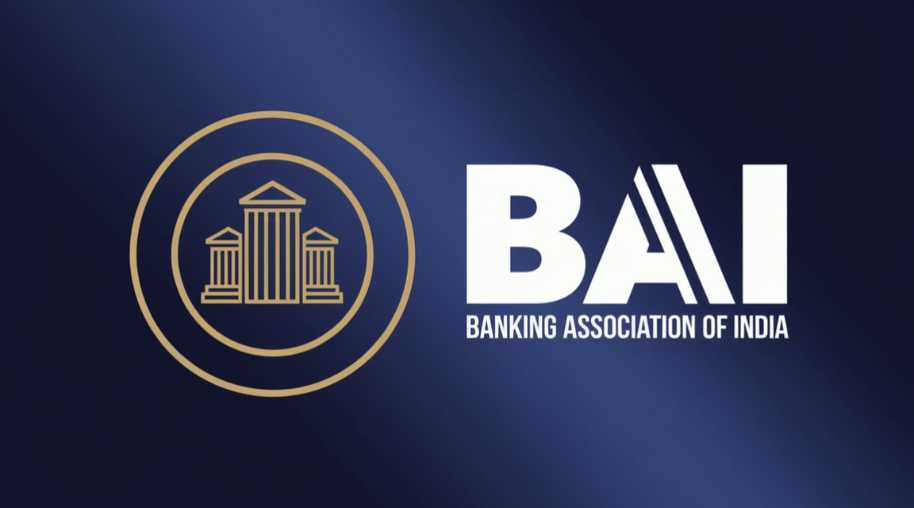BAI Full Form - Banking Association of India
by Shashi Gaherwar
0 2406
Banking Association of India: Role, Functions, and Impact on the Financial Sector
Introduction
The Banking Association of India (BAI) plays a crucial role in shaping the Indian banking sector. It serves as a representative body for banks, financial institutions, and stakeholders involved in the country's financial ecosystem. By working closely with the Reserve Bank of India (RBI) and government authorities, BAI ensures that banking policies align with economic growth and financial stability.

This article explores the role, functions, and impact of the Banking Association of India in strengthening the financial sector.
Objectives of the Banking Association of India
The Banking Association of India is established with the following key objectives:
- Policy Advocacy: Engages with regulatory bodies such as the RBI and Ministry of Finance to develop banking policies and reforms.
- Standardization: Helps establish uniform banking standards across various financial institutions.
- Financial Inclusion: Promotes banking services to the unbanked population, supporting inclusive economic growth.
- Capacity Building: Provides training programs for banking professionals to enhance efficiency and skill development.
- Dispute Resolution: Acts as a mediator in resolving banking-related disputes and regulatory concerns.
- Research & Development: Conducts studies on financial trends, innovations, and best practices in banking.
- Technology Adoption: Encourages the use of digital banking, fintech solutions, and cybersecurity measures.
Key Functions of the Banking Association of India
The Banking Association of India undertakes several critical functions to ensure smooth banking operations and support the financial system:
- Regulatory Support and Compliance:
- Collaborates with the RBI, SEBI, and other financial regulators to ensure compliance with banking laws.
- Assists banks in adhering to Basel norms, anti-money laundering (AML) guidelines, and risk management frameworks.
- Enhancing Banking Efficiency:
- Implements best banking practices and operational guidelines.
- Encourages banks to adopt automation, artificial intelligence (AI), and blockchain technology for secure and efficient transactions.
- Representation of Indian Banks:
- Represents the banking sector in national and international forums.
- Works with global financial institutions to align India's banking policies with international standards.
- Customer Protection and Awareness:
- Promotes financial literacy programs to educate customers about banking rights, fraud prevention, and digital transactions.
- Advocates for better customer grievance redressal mechanisms to enhance trust in banking services.
- Support for Small and Medium Enterprises (SMEs):
- Facilitates access to finance for small businesses and startups.
- Works with financial institutions to design credit schemes for MSMEs and rural enterprises.
Impact of the Banking Association of India
The Banking Association of India has significantly contributed to the development and stability of the Indian banking sector. Some of its major impacts include:
- Improved Banking Regulations:
- Works closely with the RBI to draft and implement banking regulations that promote financial stability.
- Ensures a transparent and well-regulated banking environment.
- Boosting Digital Banking and Fintech Innovations:
- Encourages banks to integrate UPI, NEFT, RTGS, and mobile banking services for greater convenience.
- Collaborates with fintech companies to enhance financial technology adoption in the banking sector.
- Enhancing Financial Inclusion:
- Supports government initiatives like Jan Dhan Yojana, Aadhaar-linked banking, and direct benefit transfers (DBT).
- Expands banking infrastructure in rural areas to ensure access to financial services.
- Ensuring Economic Growth and Stability:
- Strengthens the credit and lending ecosystem, ensuring businesses have access to necessary funds.
- Works with policymakers to promote economic stability by managing interest rates, inflation, and capital requirements.
- Addressing Banking Challenges:
- Provides solutions for non-performing assets (NPAs) and stressed asset management.
- Encourages debt restructuring and financial recovery mechanisms for struggling banks.
Challenges Faced by the Banking Association of India
Despite its contributions, the Banking Association of India faces several challenges:
- Regulatory and Compliance Burden: Striking a balance between regulatory compliance and operational efficiency.
- Cybersecurity Risks: Increasing digital transactions pose security threats, requiring robust risk management.
- Banking Frauds and Scams: Addressing financial frauds, scams, and unauthorized transactions.
- Financial Literacy Gaps: Enhancing awareness about banking services among rural populations.
- Economic Uncertainty: Adapting to economic fluctuations, inflation, and interest rate volatility.
Future Prospects of the Banking Association of India
To enhance the Indian banking ecosystem, the Banking Association of India must focus on:
- Strengthening Regulatory Collaboration: Closer cooperation with regulatory authorities for effective policy implementation.
- Promoting Sustainable Finance: Encouraging banks to invest in green finance and environmentally friendly projects.
- Adopting Advanced Technologies: Utilizing AI, blockchain, and big data analytics to improve banking operations.
- Expanding Financial Literacy Programs: Conducting awareness campaigns to educate individuals on banking services.
- Encouraging Cross-Border Banking Cooperation: Aligning India’s banking policies with global financial systems.
The Banking Association of India is a key player in the development of the Indian banking industry. By shaping policies, enhancing financial inclusion, and promoting banking innovations, it ensures the stability and growth of the financial sector.
While challenges such as regulatory complexities, cybersecurity risks, and financial frauds persist, the association's focus on digital transformation, regulatory compliance, and economic sustainability will drive the future of banking in India.
Further Learning Resources
If you’re passionate about building a successful blogging website, check out this helpful guide at Coding Tag – How to Start a Successful Blog. It offers practical steps and expert tips to kickstart your blogging journey!
For dedicated UPSC exam preparation, we highly recommend visiting www.iasmania.com. It offers well-structured resources, current affairs, and subject-wise notes tailored specifically for aspirants. Start your journey today!

Share:









Comments
Waiting for your comments